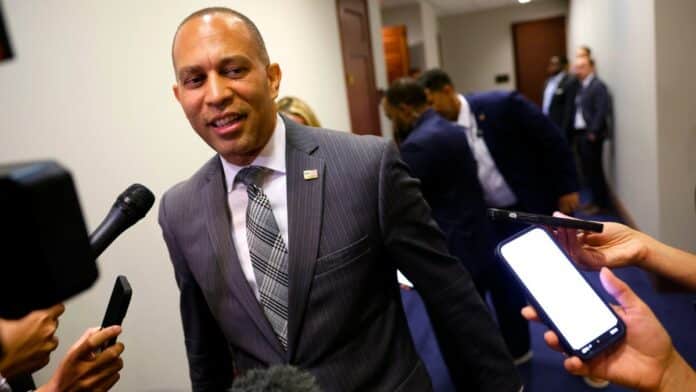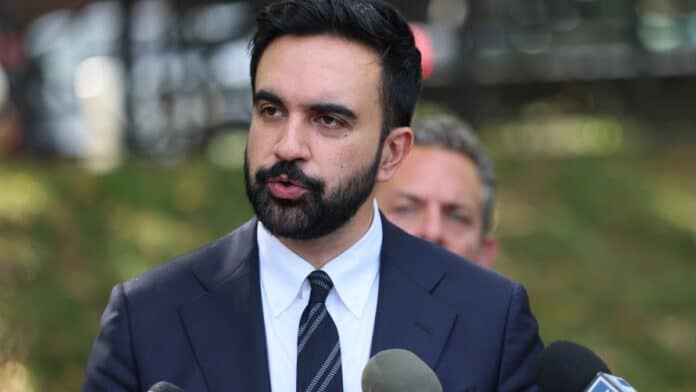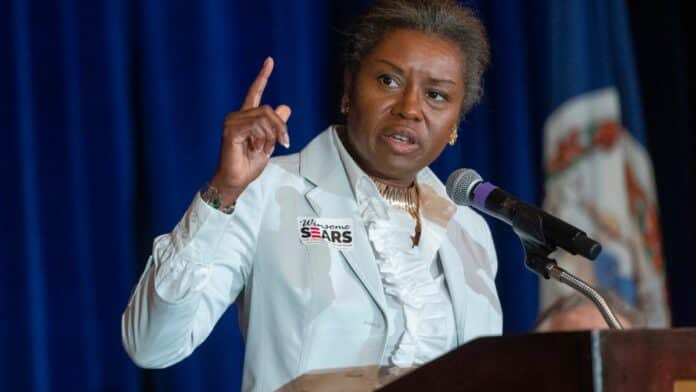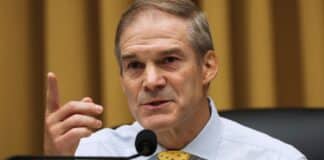Tempers flared on Capitol Hill this week as frustration with the government shutdown boiled over into shouting matches between top lawmakers, reflecting the growing dysfunction in Washington as the government shutdown enters its third week.
House Minority Leader Hakeem Jeffries (D-NY), and Rep. Mike Lawler (R-NY) clashed in a heated hallway exchange after Jeffries’ daily press briefing. “You’re embarrassing yourself right now!” shouted Jeffries. Lawler fired back, “The only embarrassment here is you!” When Lawler refused to back down, Jeffries snapped, “So just keep your mouth shut!”
The outburst was one of several confrontations as tensions rose over stalled negotiations. Speaker Mike Johnson (R-LA), faced Democratic Sens. Mark Kelly and Ruben Gallego outside his office, where the senators blasted him for not swearing in Rep.-elect Adelita Grijalva. “This is absurd,” said Johnson, later telling reporters the situation “concerns me” and calling for civility. “Let’s have policy disputes. But not make it personal,” he urged.
Republicans argue that Democrats are more interested in political theater than solutions. Lawler accused Jeffries of grandstanding while Democrats push to extend Obamacare subsidies instead of reopening the government. “If you believe in it so much!” he said, challenging Jeffries’ stance.
As emotions run high, Johnson is keeping the House out of session for now — a move aimed at preventing further chaos. “Emotions are high. People are upset. I’m upset,” Johnson admitted.
















